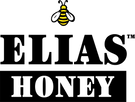Ever wonder what would happen if the bees went extinct? Gloomy!
But, we’re not going to let that happen! June 19th-25th is Pollinator Week, and the perfect time to delve into the world of bee-friendly gardening!
In this post, we will explore essential tips for creating a pollinator-friendly garden that will not only benefit the bees but also enhance the beauty and productivity of your outdoor space, and supercharge those spring and summer blooms!.
1. Choose Native Plants
One of the most effective ways to attract and support pollinators is by incorporating native plants into your garden. Native flowers and shrubs have evolved alongside local bees and insects, providing them with a familiar and nutritious food source. Research native plant species in your region and opt for a variety of colors, shapes, and bloom times to ensure a continuous food supply throughout the year. Not sure what is Native to your area? Visit a local garden shop for suggestions, tips and tricks!

2. Provide a Water Source
Just like humans, bees need access to clean water. Create a bee-friendly garden by incorporating a shallow water source such as a birdbath or a small pond. Add some pebbles or stones for the bees to land on while they drink, ensuring their safety.
3. Limit or Eliminate Pesticide Use
To create a truly bee-friendly garden, it's crucial to limit or avoid using pesticides. These chemicals can be harmful to pollinators and disrupt their natural behavior. Instead, explore organic and natural pest control methods, such as companion planting, beneficial insects, and proper garden maintenance.
4. Plant for Continuous Bloom
Bees and other pollinators require nectar and pollen throughout the growing season. Aim for a diverse range of flowering plants that bloom at different times, providing a constant food source. This approach ensures a steady supply of nutrients for pollinators, allowing them to thrive in your garden.

5. Provide Nesting Opportunities
In addition to forage, pollinators need suitable nesting sites to establish their colonies. Incorporate bee-friendly elements such as bee hotels, hollow stems, and bare ground areas for ground-nesting bees. These habitats offer shelter and nesting opportunities for various pollinators, contributing to a thriving garden ecosystem.
6. Avoid Hybridized Plants
While hybridized plants may have showier flowers, they often produce less nectar and pollen. Opt for heirloom or open-pollinated varieties instead, as they tend to provide a richer source of food for pollinators. Prioritizing plants with single or semi-double blooms is ideal, as these are generally more accessible to bees.
7. Create Different Heights and Textures
Pollinators, including bees, appreciate a diverse landscape with varying heights and textures. Incorporate plants of different heights, such as tall sunflowers, mid-sized coneflowers, and low-growing herbs. This variety not only provides forage but also offers shelter, nesting, and resting places for pollinators.

8. Practice Responsible Garden Maintenance
Regular maintenance is essential for a healthy garden, but it's important to be mindful of pollinators during these activities. Avoid excessive pruning during the peak of the blooming season to prevent removing potential food sources. Additionally, leave some areas of your garden undisturbed for ground-nesting bees and other pollinators.
9. Educate and Spread Awareness:
Part of creating a bee-friendly garden is raising awareness among your community. Share your experiences, knowledge, and the benefits of bee-friendly gardening with friends, neighbors, and social media followers. By inspiring others to create their own pollinator-friendly gardens, we can collectively make a significant impact on supporting pollinators and conserving their habitats.
10. Partner with Elias Honey:
Elias Honey is committed to supporting pollinators and sustainable beekeeping practices. By purchasing Elias Honey products, you contribute to the conservation of bees and their habitats. Join us in promoting a healthier environment for both humans and pollinators.
As we celebrate Pollinator Week, let's embrace the beauty and importance of bees and other pollinators by creating a bee-friendly garden. By following these tips and incorporating bee-friendly practices, you can make a positive impact on the well-being of pollinators while enjoying a vibrant and thriving garden. Together, let's protect our pollinators and contribute to a sustainable future.
References:
- National Wildlife Federation. (n.d.). Planting a Pollinator Garden. Retrieved from https://www.nwf.org/Garden-for-Wildlife/About/Native-Plants/Planting-a-Pollinator-Garden
- The Honeybee Conservancy. (n.d.). Bee-Friendly Plants for Your Garden. Retrieved from https://thehoneybeeconservancy.org/bee-friendly-plants/
- The Xerces Society for Invertebrate Conservation. (n.d.). Pollinator Plants: Great Lakes Region. Retrieved from https://www.xerces.org/pollinator-conservation/plant-lists/pollinator-plants-great-lakes-region
- The Old Farmer's Almanac. (n.d.). Plants that Attract Bees. Retrieved from https://www.almanac.com/plants/bee
- United States Environmental Protection Agency. (n.d.). Protecting Bees and Other Pollinators from Pesticides. Retrieved from https://www.epa.gov/pollinator-protection




